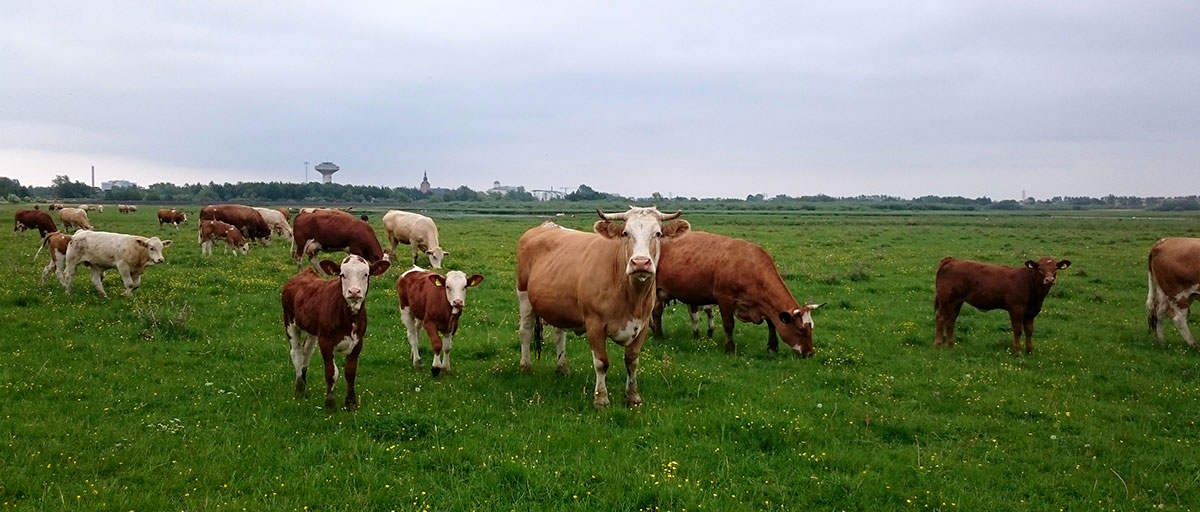ECOSYSTEM SERVICES
Why ecosystem services should be considered in groups, not individually
Five reasons why a ‘bundles’ approach can improve our understanding of nature’s services to humans
- The majority of research assessing ecosystem services has so far focused on single or narrow sets of such services
- But these services do not develop in isolation, they emerge from a complex and tight interaction between humans and nature
- In the study, the authors provide a framework for structuring comparisons by identifying similar drivers, indicators, or social or ecological context
BUNDLES OF BENEFITS: A more comparative approach where ecosystem services are looked at in bundles instead of as single service can greatly improve the way we manage and sustain them. This is the conclusion from a paper recently published in Ecosystems and People by centre researcher Megan Meacham together with Albert Norström, Garry Peterson, Erik Andersson and colleagues.
The majority of research assessing ecosystem services has so far focused on single or narrow sets of such services. They have also tended to focus on either ecological or social aspects. This needs to change, the authors argue.
Not marginal or temporary
There is growing recognition that ecosystem services, the various benefits humans receive from nature must be protected. But these services do not develop in isolation, they emerge from a complex and tight interaction between humans and nature. “The social and ecological links are not marginal or temporary; they are intertwined and being shaped by one another,” Mecham explains.
In their paper, Meacham and her colleagues argue that in order to improve our understanding and assessment of different services, there is a need to talk about them in the term of a bundle or a group, not individual services.
Such a ‘bundles approach’ offers a stronger foundation for making better comparisons and easier ways to identify connections.
Comparisons of ecosystem service bundle studies are needed for contextualizing results, finding generalizable patterns, and improving our understanding of social-ecological systems.
Megan Meacham, lead author
Five benefits
Meacham and her colleagues have identified five benefits from using a bundles analysis:
1. It simplifies analysis
By considering multiple ecosystem services at once , potential trade-offs and synergies may be recognised, illuminating potential unintentional consequences of changes in the system.
2. It simplifies management
A bundles approach can help to identify benefits between several services which in turn can lower assessment and management costs
3. It helps develop a more practical theory on social-ecological systems
By assessing bundles, new patterns may emerge, thus uncovering how landscapes develop, transition and reconfigure
4. It fills data gaps
When limited data is available, assumptions about other services can be made when they are bundled together
5. It helps connect research groups and stakeholders
The bundles approach encourages the exploration of new connections. There is no space for research compartmentalisation. Similarly, stakeholders can discover how their different ecosystem priorities fit with each other
But it is not just about bundling the services together. "We need to learn from all the emerging studies of ecosystem service bundles by comparing across cases," says Meacham.
Even though studies may have different research questions, methods, contexts, and constraints there are ways to find areas of comparability.
In the study, the authors provide a framework for structuring comparisons by identifying similar drivers, indicators, or social or ecological context (see figure below).
Essentially, Meacham concludes: “Comparisons of ecosystem service bundle studies are needed for contextualizing results, finding generalizable patterns, and improving our understanding of social-ecological systems."
Read Advancing research on ecosystem service bundles for comparative assessments and synthesis

Comparability of ecosystem service bundle studies Three types of comparisons are possible (direct comparisons, combination comparisons, and parallel use).
Meacham, M., Norström, A., Peterson, G.D., Andersson, E., Bennett, E.M., Biggs, R. et.al. 2022. Advancing research on ecosystem service bundles for comparative assessments and synthesis. Ecosystems and People Volume 18, 2022 - Issue 1, https://doi.org/10.1080/26395916.2022.2032356









